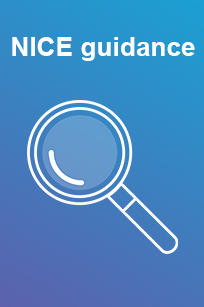Nice update: single guideline for managing Covid-19
 What’s the guidance?
What’s the guidance?
NG191: Covid-19 rapid guideline: managing Covid-19
Does it replace earlier guidance?
Yes, the guideline brings together Nice’s existing recommendations on managing Covid-19 so that healthcare staff and those planning and delivering services can find and use them more easily. The guideline includes new recommendations on therapeutics, and Nice will update the guideline further as new evidence emerges.
What does it cover?
In response to ongoing developments throughout the pandemic, Nice has produced numerous rapid Covid-19 guidelines to help healthcare workers respond to the ongoing pandemic. Feedback has indicated that users would now find it useful for all essential information about managing Covid-19 to be included in a single piece of guidance.
The guideline was developed in the Magicapp authoring and publication platform. This is a global system that promotes evidence sharing from different guideline creators, increasing the speed at which guidance can be developed and the ease with which it can be updated.
The guideline covers the management of clinically or lab-diagnosed Covid-19 for children, young people and adults across all care settings. It lists the key symptoms of Covid-19 for identifying patients with severe illness, including confusion, reduced oxygen levels and shortness of breath.
In addition, the guideline includes updated recommendations on two treatment options for Covid-19. An update to the previously published evidence summary, guidance suggests that remdesivir should now be considered for adults and children over the age of 12 who are receiving oxygen in hospital, but who are not on advanced respiratory support. An update to the earlier recommendation on heparins (which prevent the formation of blood clots) also means that these medications can be considered as treatment options for some Covid-19 patients.
The guideline reiterates advice that patients’ individual wishes around treatment options and advance care plans should be discussed and documented clearly and used to inform care. If patients do not have advance care plans, they should be given the opportunity to express their preferences. As previously recommended by Nice, when planning care, healthcare professionals should not use tools such as the Clinical Frailty Scale for younger patients, or people with long-term stable disabilities such as cerebral palsy, learning difficulties or autism.
Who is it for?
The guideline is for health and care practitioners, and those involved in planning and delivering services. It provides guidance on managing Covid-19. The guideline makes recommendations about care in all settings for adults, children and young people with clinically diagnosed or laboratory-confirmed Covid-19.
What are the benefits?
Many of the recommendations made early in the pandemic were based on the consensus of the guideline expert panels, so supporting information is limited. Nice has reviewed all content, using topic expert input and more recent evidence, and updated the recommendations where needed.
Nice aims to update these recommendations frequently in line with new evidence and will produce new recommendations where gaps are identified. Nice searches and sifts the evidence weekly to produce living recommendations that reflect the latest best available evidence.
What are the financial implications?
Resource impact tools to support the guideline have not currently been produced.
Gary Shield is resource impact assessment manager at Nice
Related content
We are excited to bring you a fun packed Eastern Branch Conference in 2025 over three days.
This event is for those that will benefit from an overview of costing in the NHS or those new to costing and will cover why we cost and the processes.